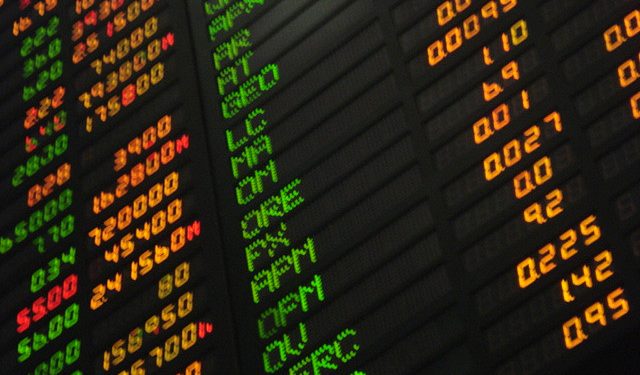Nigeria’s central bank has begun selling a fresh supply of dollars for students to pay for school fee payments and travel abroad, increasing the amount they are allowed to buy and enabling them to avoid paying heavy premiums for the currency on the black market.
News and business analysis for Professionals in International Education
Have some pie!
Nigeria issues welcome reform to forex for overseas study
 Nigerian students looking to study abroad have previously struggled with long processing times for foreign currency, coupled with high exchange rates. Photo: Katrina.Tuliao
Nigerian students looking to study abroad have previously struggled with long processing times for foreign currency, coupled with high exchange rates. Photo: Katrina.Tuliao The move comes as great relief to students who have struggled for almost a year with long processing times for foreign currency applications and inflated exchange rates on the parallel market.
On February 20, the Central Bank of Nigeria said it would reopen sales of foreign currency to cover overseas tuition fees and a personal travel allowance for students “to ease the difficulties encountered by Nigerians in obtaining funds for some invisible transactions”.
The Central Bank of Nigeria will begin supplying dollars immediately to retail clients via commercial lenders
Foreign currency for study abroad has been difficult to come by in Nigeria since the government halted sales in March last year. The CBN began issuing foreign currency again in June 2016, but the amount customers have been able to access has been heavily restricted.
As a result, people have been reportedly paying 40% premiums on dollars on the black market because they have been unable to obtain them through retail banks.
Combined with the already low value of the naira, this lack of access to currency has curbed access to study abroad. The effect has been especially marked in the UK, which has been rendered unaffordable for many students.
Education agents therefore welcomed Monday’s announcement that the CBN would begin supplying dollars immediately to retail clients via commercial lenders.
“We all feel the directives have provided a ray of hope for the sector,” commented Ola Fatuga, education and careers consultant at Equippers International, told The PIE News. “The galloping Nigerian foreign exchange situation has affected many; students have been withdrawn from UK schools back to Nigeria and interest in students coming over has reduced a great deal.”
Though she acknowledged the directive may not lead to a complete recovery of the outbound market, she predicted: “It may offer a temporary reprieve from the downward overseas student’s migratory trend experienced in the last couple of years.”
Yomi Asade, senior branch manager at UKEAS Nigeria, meanwhile said the announcement is “certainly a step in the right direction”.
“[It] would go a long way in increasing the number of students aspiring to study overseas this year as students, along with their sponsors, may now be able to transfer tuition fees through the banks at the interbank rate, which is much lower than the parallel market/black market rate.”
“It will stabilise the student recruitment market and provide confidence to parents and sponsors paying the tuition fees”
Retailers will be allowed to charge no more than 20% above the interbank market rate, which ranges from 305-315 naira to the dollar. In comparison, the parallel market rate has risen to 517 naira to the dollar, CBN spokesman Isaac Okorafor said in an interview last week with Arise News Network.
Parents or guardians of students who can produce a letter of admission and invoice from an overseas school will be able to buy $15,000 per semester to cover tuition fees, which must be paid directly into the school’s account.
Students whose travel plans necessitate a flight of five or more hours will also be allowed to buy up to $4,000 per quarter as a personal travel allowance.
The amount should be enough to cover students’ fees in most cases and will have a “huge impact for Nigerian students looking to study overseas”, predicted Stuart Rennie, managing director of SJRennie Consulting.
“It means students will be able to secure much larger sums of foreign currency to help pay deposits to universities, but more importantly, it means they will not have to pay the exorbitant rates currently in place on the black market,” he added.
In addition to school fees and personal travel, the new policy will also apply to the sale of currency for medical needsand business travel.
In a statement, the CBN said it would “ensure that this process is as smooth as possible” and “that as many customers as possible get the foreign exchange they genuinely demand”.
Given the clarity of the directive, Fatuga said there should be no problems with it coming into force.
“Implementing it should be fairly straightforward,” she said. “What might frustrate the implementation of this policy, will be unnecessary bureaucracy by the banks which can put parents off.”
Rennie praised the government’s quick response to the reverse the forex policy that he said “was not working”.
“It will stabilise the student recruitment market and provide confidence to parents and sponsors paying the tuition fees,” he said.
Still looking? Find by category:



Great article.
Why people still use to read news papers when in this technological world all is presented on web?